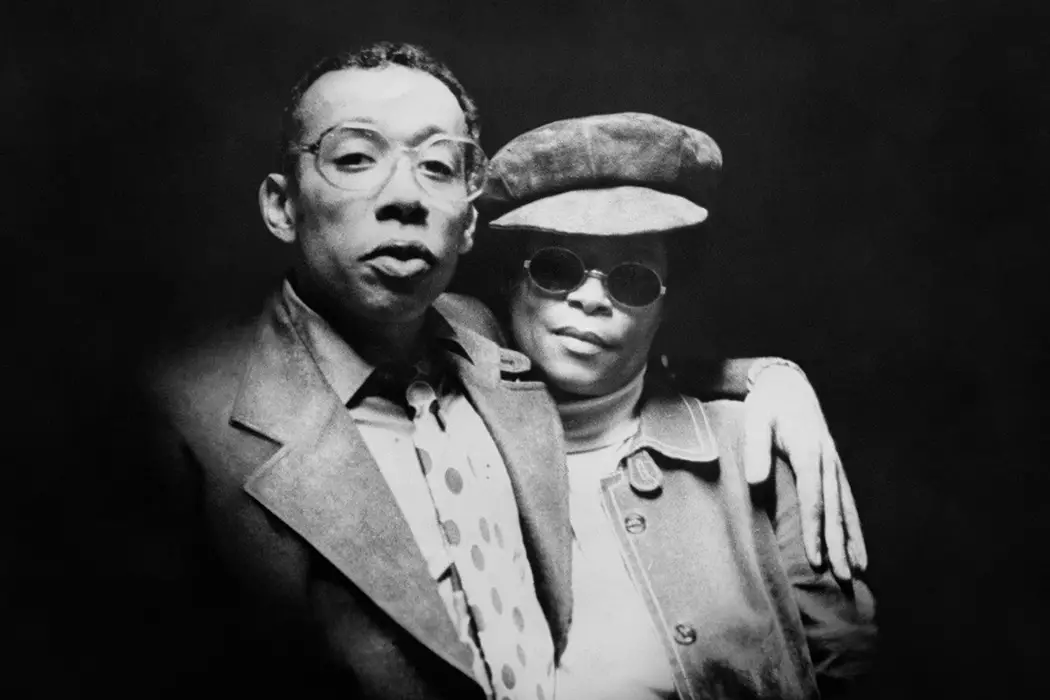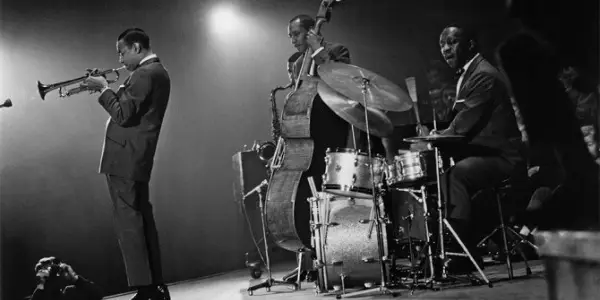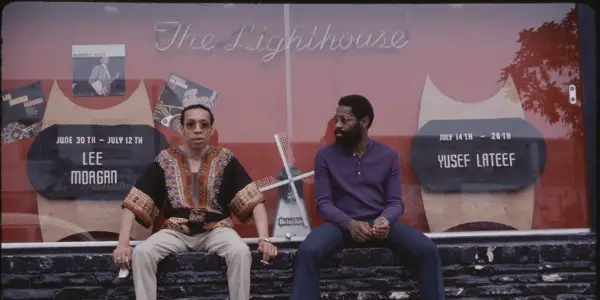I CALLED HIM MORGAN: A Riveting Treatment Of An American Music Legend

Arlin is an all-around film person in Oakland, CA. He…
With biographical documentaries about major jazz figures, there are typically two tracks to take. One is to create a film whose form befits the improvisational and avant-garde aspects of the subject at hand, such as with Shirley Clarke‘s Ornette: Made in America. The road more often taken is to do a film that simply relates the chronological details of the subject’s life, while featuring some of the music, as was the case with this year’s Chasing Trane.
Kasper Collin takes a sort of middle approach with his new film I Called Him Morgan, which chronicles the life and untimely death of noted trumpeter Lee Morgan. Though featuring a number of talking head interviews, the film forgoes cultural “experts” altogether, instead spending time with those who knew Morgan best. But the real thing that sets the film apart is its two converging narratives: one the story of Lee’s musical peaks and valleys, and the other, that of his wife, Helen Morgan, thanks to a chance cassette tape recording made in Wilmington, NC a month before her death.
A Celebration of the Sound
Though this is ostensibly a biographical film, it is also one that takes time to breathe so that you can really enjoy the music, as opposed to it merely being background to support the narrative. After all, the music is what brought us here, and without an appreciation for it you can’t have an appreciation for the genuine love for Morgan so apparent in all the interviews.

The opening shot is of snow falling as Morgan’s trumpet fills the sonic space, setting a more contemplative rather than historical tone for the film. Later, there are whole sequences devoted to Morgan’s compositions, with little to no commentary, playing over Francis Wolf‘s genre-defining photography of Lee’s group in the studio. The trumpet is an instrument that blasts, and its use in the film is a jolt, commanding your full attention.
With its unique respect for the music, I Called Him Morgan is really a jazz lover’s dream. In addition to archival footage of performances, such as when Morgan performs his iconic solo on “Moanin'” as a part of the all-star lineup for Art Blakey & The Jazz Messengers, you also get Wayne Shorter recounting the first time he played with the Messengers, or what it was like creating the Blue Note sound with Lee, Art and others. The opportunity to capture such recollections from primary sources is fading fast, so in addition to a compelling recounting of Morgan’s story, the film is also a vital document.
But even if you haven’t the slightest passing interest in jazz, I Called Him Morgan is still a remarkably compelling film about the trials of artistic pursuit and the virtues and perils of devoted love. Though we hear Morgan’s music at the opening, it’s Helen who the film first introduces to us as a character, and it’s her words that launch the story, as the opening sequence of interviews portend something darker than merely an account of a musician’s life.

She came into Lee’s world at his lowest point and helped him to turn it around to such a degree that he almost became a new person. That identity is signified by how she addressed him, which is also how the film gets its title; she recalls “I didnt like the name ‘Lee’, so I called him Morgan”. As the film progresses and Helen’s story and that of Morgan as told by those closest to him begin to converge, the tension that results from how that happens and what’s implied in the opening sequence keeps the narrative taught, the suspense heightened, and the viewer at the edge of their seat.
Film Narrative as Jazz
It’s rare that a film makes you feel so acutely in its brief run-time the passage of time spanning years, covering albums and addictions alike, but I Called Him Morgan accomplishes just that. Archival photographs of Morgan during his time in Dizzie Gillespie‘s band early in the film reveal a young, exuberant boy loving life, yet to feel its full weight. By the end that vitality is never quashed, only matured, and the evolution is palpable.
The credit for such a feat should be spread out: to director Kasper Collin, adult education teacher and jazz radio host Larry Reni Thomas, who made the recording so essential to the film’s structure, and to Lee’s friends and bandmates who bore witness to the subject’s life and achievements. Working together, the players almost mirror a jazz ensemble, led by Collin, that feeds off one another, taking the time to solo, but always falling back in rhythm and producing something honestly beautiful.
What did you think of I Called Him Morgan?
I Called Him Morgan was released in the US on March 24, 2017. For all upcoming release dates, click here.
Does content like this matter to you?
Become a Member and support film journalism. Unlock access to all of Film Inquiry`s great articles. Join a community of like-minded readers who are passionate about cinema - get access to our private members Network, give back to independent filmmakers, and more.
Arlin is an all-around film person in Oakland, CA. He received his BA in Film Studies in 2010, is a documentary distributor and filmmaker, and runs Drunken Film Fest Oakland. He rarely dreams, but the most frequent ones are the ones where it's finals and he hasn't been to class all semester. He hopes one day that the world recognizes the many values of the siesta system.













